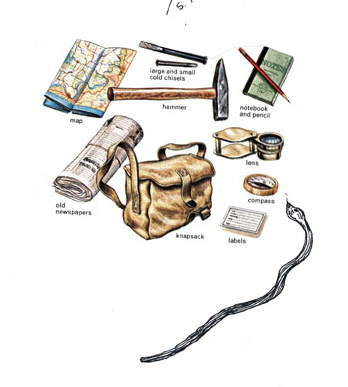 In a culture column of the International Herald Tribune titled “What Technology Has Taught us at Dizzying Speed,” Alicia Rawsthorn muses on some areas in which technological change has rendered some skills obsolete and introduced new ones. Of course, skill change resulting from technological advances is not a new concept, but the especially quick turnaround that the author observes today seems to be unprecedented.
In a culture column of the International Herald Tribune titled “What Technology Has Taught us at Dizzying Speed,” Alicia Rawsthorn muses on some areas in which technological change has rendered some skills obsolete and introduced new ones. Of course, skill change resulting from technological advances is not a new concept, but the especially quick turnaround that the author observes today seems to be unprecedented.
“Just think of all of the skills that, if (like me) you’re over 30, you learned years ago, but rarely use now because something else does the job for you. Who needs to learn how to spell when you can use spell-check software? To read a map in the age of sat nav? To be good at math when there are calculators? To remember exactly where that great antiquarian bookstore is in Paris when it’s so easy to Google it? Those old skills haven’t suddenly become useless, just less useful than they would have been 10 years ago. What have we replaced them with?”
Rawsthorn identifies several categories of new skills that have been introduced by technological change, including multitasking, synthesizing, changing, visualizing, and thumb-flexing (you’ll have to read the full article to get that last one). I think each of these skillsets could be a blog post of ifs own, but I was particularly interested in her thoughts on synthesizing. Another quote:
“We’ve also become more efficient at navigating that daily blizzard of information by ignoring the flotsam to identify the things that matter and then making sense of them. In other words we’ve trained ourselves to synthesize.
The Internet has helped us. In ye olden days, when we found most of our information on the printed pages of books, newspapers and magazines, it had already been synthesized for us by researchers, writers and editors. That isn’t the case on the Internet, which gives us instant access to a seemingly bottomless pit of information that we have to edit ourselves. If you and I keyed the same question into Google, we might eventually find similar answers, but we’d have followed different routes to get there. Flitting from Web site to Web site, we pluck bits and pieces of information from each one, then put them all together. That’s why we’ve become better at synthesizing – we’ve had to.”
This is definitely true. There is no way that anyone could keep from going mad by the overwhelming amount of information available on the internet without having methods and devices that filter it for us. I talked about this a bit in my newsletter, “You’re Using RSS Now … Right?” The big point I was trying to make is that now that RSS is a significant delivery method, one must get comfortable with skimming content- that’s the only way to determine if it’s going to be relevant. I’ll bet that at some point, the pre-delivery filters will get more sophisticated, so that you can use social media profiles as your filter, but until that point comes, this new skill is essential.
It also occurred to me that the synthesis is not just of web material. This may be the case for some who don’t read any books, magazines or newspapers, or listen to the radio or watch television, but for most people, I think the synthesis is of all different kinds of media. I’m sure that the ratios are shifting quickly in favor of online media (I know that to be the case for me, and for many of my friends and colleagues). I wonder if, for those discerning between on and offline media, the decisive factor isn’t often “newness,” which I would assume bolsters online media more than any other.


